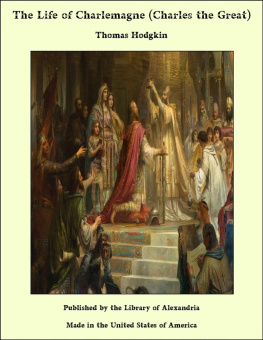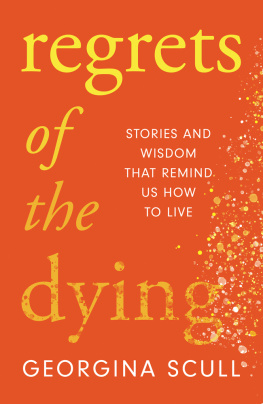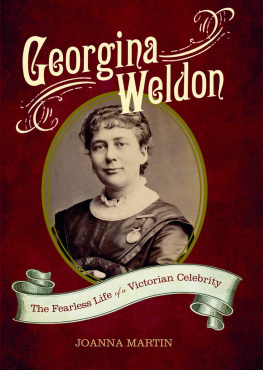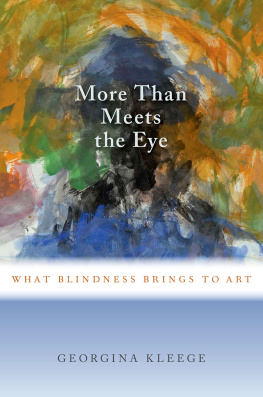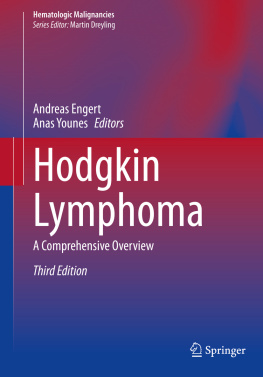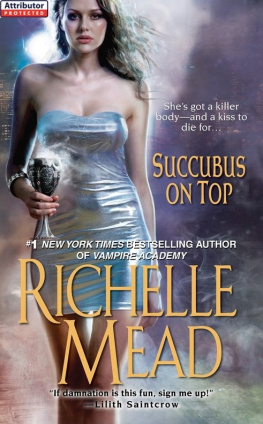Ferry Georgina - Dorothy Hodgkin: A Life
Here you can read online Ferry Georgina - Dorothy Hodgkin: A Life full text of the book (entire story) in english for free. Download pdf and epub, get meaning, cover and reviews about this ebook. City: England;Oxfordshire;Oxfordshire (England, year: 2014, publisher: Bloomsbury Reader, genre: Non-fiction. Description of the work, (preface) as well as reviews are available. Best literature library LitArk.com created for fans of good reading and offers a wide selection of genres:
Romance novel
Science fiction
Adventure
Detective
Science
History
Home and family
Prose
Art
Politics
Computer
Non-fiction
Religion
Business
Children
Humor
Choose a favorite category and find really read worthwhile books. Enjoy immersion in the world of imagination, feel the emotions of the characters or learn something new for yourself, make an fascinating discovery.

- Book:Dorothy Hodgkin: A Life
- Author:
- Publisher:Bloomsbury Reader
- Genre:
- Year:2014
- City:England;Oxfordshire;Oxfordshire (England
- Rating:3 / 5
- Favourites:Add to favourites
- Your mark:
- 60
- 1
- 2
- 3
- 4
- 5
Dorothy Hodgkin: A Life: summary, description and annotation
We offer to read an annotation, description, summary or preface (depends on what the author of the book "Dorothy Hodgkin: A Life" wrote himself). If you haven't found the necessary information about the book — write in the comments, we will try to find it.
Dorothy Hodgkin: A Life — read online for free the complete book (whole text) full work
Below is the text of the book, divided by pages. System saving the place of the last page read, allows you to conveniently read the book "Dorothy Hodgkin: A Life" online for free, without having to search again every time where you left off. Put a bookmark, and you can go to the page where you finished reading at any time.
Font size:
Interval:
Bookmark:
A Life
Georgina Ferry

For David, Edward, and William
This electronic edition published in 2014 by Bloomsbury Reader
Bloomsbury Reader is a division of Bloomsbury Publishing Plc, 50 Bedford Square, London WC1B 3DP
First published in Great Britain in 1998 by Granta Books
Copyright 1998 Georgina Ferry
Jacket image Deborah Elliott
All rights reserved
You may not copy, distribute, transmit, reproduce or otherwise make available this publication (or any part of it) in any form, or by any means (including without limitation electronic, digital, optical, mechanical, photocopying, printing, recording or otherwise), without the prior written permission of the publisher. Any person who does any unauthorised act in relation to this publication may be liable to criminal prosecution and civil claims for damages.
The moral right of the author is asserted.
eISBN: 9781448214549
Visit www.bloomsburyreader.com to find out more about our authors and their books
You will find extracts, author interviews, author events and you can sign up for newsletters to be the first to hear about our latest releases and special offers.
Cairo and Norfolk, 19101928
Somerville and Oxford, 19281932
J. D. Bernal and Cambridge, 19321934
Oxford, insulin and Thomas, 19341937
Proteins and pregnancy, 19381939
War and penicillin, 19391945
America, Russia and Vitamin B12, 19461960
The Nobel prize and insulin, 19601969
China, Africa, India, education and peace, 19591988
Retirement and after, 19771994
Dorothy Crowfoot Hodgkin changed my life. Since this biography was first published in 1998 (following Dorothys death in 1994) I have been classified as author, biographer and even historian, having previously been content with science writer as a description of my activities. In 2010 I added playwright to the list: I wrote and produced a short play about Dorothy, Hidden Glory, to mark the centenary of her birth.
I have written articles about Dorothy for newspapers, magazines and encyclopaedias, been interviewed about her on the radio, appeared in several podcasts, and given countless talks on her life and work to audiences from schoolchildren to Fellows of the Royal Society. As the only British woman scientist ever to win a Nobel Prize, she is always on the agenda when womens representation in science comes into question.
2014 is designated International Year of Crystallography: the same year marks the 50 th anniversary of the award of a Nobel Prize for Chemistry to Dorothy Hodgkin. I am absolutely delighted that Bloomsbury Reader has chosen this year to make the book available to new audiences through the wonders of electronic publishing. My thanks go to Stephanie Duncan and her team for giving the book a new lease of life, and bringing Dorothys story to another generation of future scientists. And I would like once again to thank the extended Hodgkin family, who made the book possible in the first place and have remained steadfast supporters of all my Dorothy-related activities.
Georgina Ferry
May 2014
www.georginaferry.com
@ferrygeo
Dorothy Crowfoot Hodgkin is so obvious a subject for a biography that I was astonished when I discovered, soon after her death in 1994, that none had been written. As Britains only female Nobel laureate, she holds a unique place in the history of twentieth-century science. A quintessentially English woman whose humanity recognized no national boundaries, her memory is cherished from Buffalo to Beijing, from Bucharest to Bangalore. Family, friends and colleagues are only too happy to talk about her.
But Dorothy herself was wary of attempts on her life, and I suspect that were she still living this book would not now be in print. It came about as a result of an article about her that I wrote for the magazine Oxford Today, published only weeks before her death. Soon afterwards her daughter Elizabeth Hodgkin invited me to visit, and we talked about the fragment of autobiography Dorothy had left, which Elizabeth and her niece Kate Hodgkin were trying to prepare for publication. It was clear that there was scope for a much fuller account, and without further thought I said I would be very keen to take this on.
I was enormously touched by the trust the Hodgkin family placed in me when they agreed to my suggestion. I never met Dorothy; I am not a chemist by training, and certainly not a crystallographer; this is my first book. To do justice to the woman and her science is a formidable responsibility. Given her own mixed feelings about biography she certainly did not like the idea of a life appearing in her lifetime, unless she had written it herself I have little hope that she herself would approve the result. But knowing something of the nature of her reservations, I hope I have been able to avoid the kind of writing that caused her most grief.
She became very fed up with being treated as the token woman scientist in endless newspaper interviews Its very boring if you always ask the same people, she told one surprised reporter. One of the most rewarding aspects of the research for this book was the number of other women who turned up as supporting characters many of them scientists. In a similar vein, Dorothy had a horror of the term role model, and so I have not used it; however, she was glad that both men and women cited her example as a factor in the progress of their own careers, and any number of them feature in these pages. She vehemently rejected any suggestion that her gender was an obstacle to her progress. For the most part her life story bears this out, and I have tried to show what factors enabled her not only to achieve, but to be recognized for her achievements, at a time when women were not generally expected to have careers.
Today, even Dorothys greatest admirers would have to admit that her name does not resonate in the minds of the public like that of Marie Curie, or those of other Nobelists such as Albert Einstein, or James Watson and Francis Crick. One reason perhaps is that the nature of her science, X-ray crystallography, is less easily accessible, and its practical consequences less discernible, than the work of these others. She was, in the words of Lord Phillips, a former colleague, not just a scientists scientist but a crystallographers crystallographer. The structures she chose to work on penicillin, Vitamin B12, insulin were all medically important; but she chose them first and foremost because they were interesting scientifically, and potentially soluble with the methods at her disposal. It was the quest for exact and beautiful solutions to difficult problems that motivated Dorothy to surmount indifferent facilities, experimental setbacks, the demands of marriage and motherhood, and persistent physical pain, to become one of the greatest scientists of the century.
At the same time she wore her fame lightly. Unlike her close friend the double Nobel laureate Linus Pauling, who died just a few weeks after Dorothy in 1994, self-promotion was not part of her nature. For example, unusually for a scientist of such distinction, she never wrote a book. She never demanded, nor did she seem to expect, to be placed at the head of a grand and well-equipped laboratory. With a list of honours including the Nobel prize, the Order of Merit, the Lenin Peace Prize and the Freedom of Beccles she always gave her name as plain Dorothy Hodgkin, and insisted that the most junior of her colleagues call her simply Dorothy (following this precept I have done so throughout this book).
Font size:
Interval:
Bookmark:
Similar books «Dorothy Hodgkin: A Life»
Look at similar books to Dorothy Hodgkin: A Life. We have selected literature similar in name and meaning in the hope of providing readers with more options to find new, interesting, not yet read works.
Discussion, reviews of the book Dorothy Hodgkin: A Life and just readers' own opinions. Leave your comments, write what you think about the work, its meaning or the main characters. Specify what exactly you liked and what you didn't like, and why you think so.

